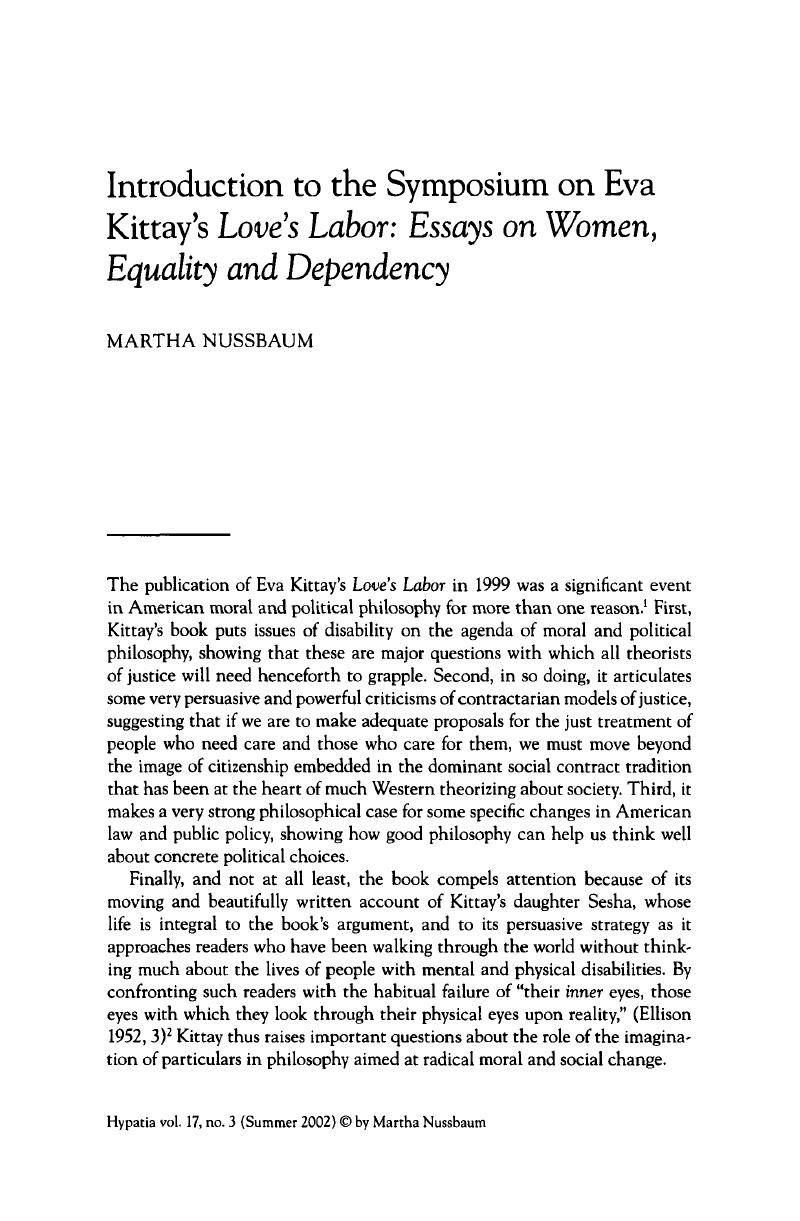Crossref Citations
This article has been cited by the following publications. This list is generated based on data provided by Crossref.
Weicht, Bernhard
2010.
Embracing Dependency: Rethinking (in)Dependence in the Discourse of Care.
The Sociological Review,
Vol. 58,
Issue. 2_suppl,
p.
205.
Hee-Kang Kim
and
강문선
2010.
A Public Ethic of Care: Eva Kittay and the‘ Care Aid Program to Families with Disabled Children' in South Korea.
Korean Political Science Review,
Vol. 44,
Issue. 4,
p.
45.
Whitney, Shiloh Y.
2011.
Dependency Relations: Corporeal Vulnerability and Norms of Personhood in Hobbes and Kittay.
Hypatia,
Vol. 26,
Issue. 3,
p.
554.
McMenamin, Trish
2018.
A just state of affairs: philosophical reflections on justice, inclusion and the education of disabled children.
Cambridge Journal of Education,
Vol. 48,
Issue. 5,
p.
625.



